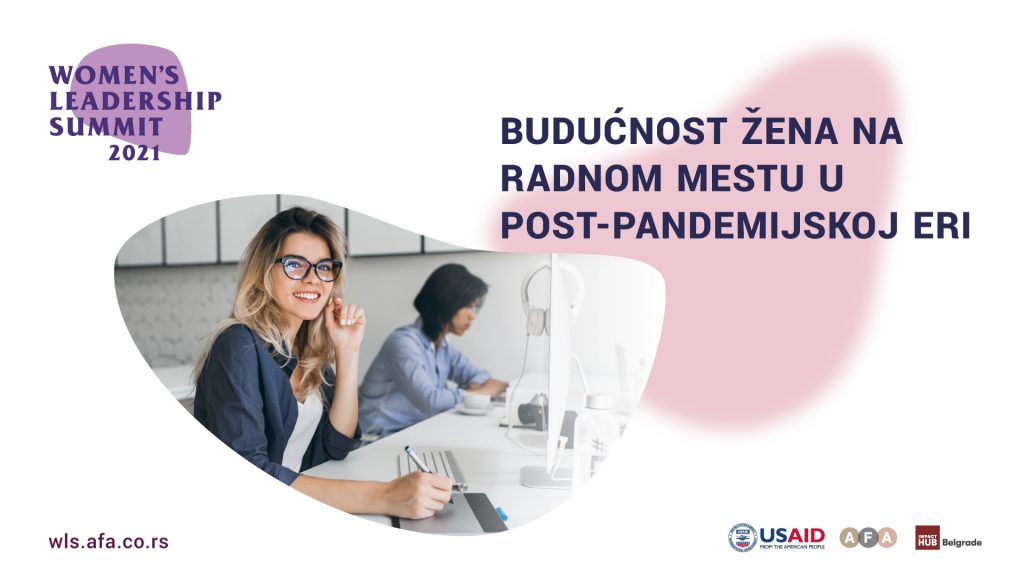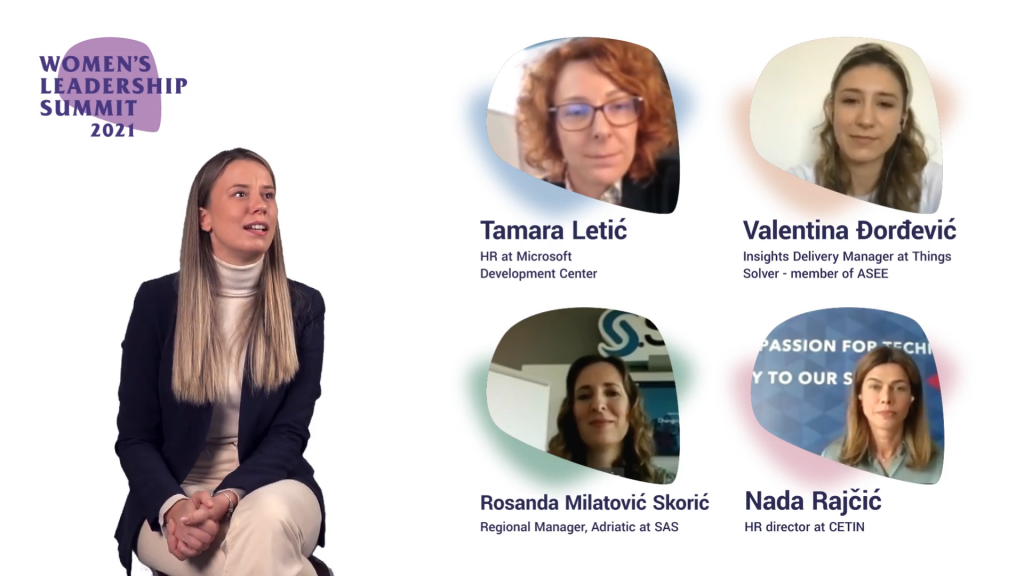“The future of women in the workplace in the post-pandemic era”

In the last year and a half, we have witnessed accelerated digitalization due to the Kovid 19 pandemic. There is almost no sphere of life that does not suffer rapid changes due to digitalization. The labor market is no exception. As one occupation dies out, new ones continually emerge. Simple repetitive processes are digitized, and physical work is replaced by robots. Those who are not digitally and technologically literate will be challenged to stay in the labor market, and the future of work is especially uncertain for women, primarily because women are less digitally literate than men and more represented in lower positions and lower value-added jobs that are easier to automate. There are far fewer women in STEM occupations, which are occupations of the future and in which as many as 60% of new jobs will be created.
This and related topics were discussed at the recently held, fifth in a row, AFA Women’s Leadership Summit. The central theme of the Summit was “The future of women in the workplace in the post-pandemic era”. Over 40 speakers from Serbia and the region discussed gender (in)equality in various sectors, risks faced by women in the labor market, skills necessary for survival in this market, future occupations, ways in which technologies change jobs and life, importance involving women in creating a digital future, and the future of women in the technology sector, cyber security, banking, retail, marketing, etc.

When it comes to surviving in the job market in the age of rapid change brought about by the technological revolution, the only recipe is to invest in lifelong learning and digital literacy. Technological changes affect all sectors – both traditional and modern, and what differs is the readiness of the workforce for these changes. Sectors with a higher share of low value-added employees and low digital literacy will be more challenged to retrain their workforce, and these are often female-dominated sectors (eg banking and retail). These sectors are working intensively on retraining and additional education of their employees, in order to create the so-called A “digital workforce” ready for the future.
However, sectors that by their nature already have such a workforce (eg the IT sector) also need to continuously learn and adapt to change. It’s not about specific skills, it’s not about inserting numbers into a program, it’s not the point of knowing how artificial intelligence actually works, it’s about developing a “mindset” that is ready to accept new things, not rely on phenomenal things that He did it five years ago, “said Nina Jocic, an analytical consultant at Google, at the AFA Women’s Leadership Summit.
In the end, companies have a challenge to find the workforce of the IT profession, because the demand for these occupations is growing rapidly, and there are not enough vacancies in the market. Given that the share of women in IT is significantly lower (25%), then there is currently a high focus on creating female staff, because no one has the “luxury” to overlook this segment of the workforce. Also, companies are increasingly realizing the importance of diversified and inclusive teams to create better solutions that are tailored to all of us. “An equal everyday life is a better everyday life. Gender equality increases creativity, innovation, and in the end – profitability, “said the new IKEA Executive Director for Southeast Europe – Ekaterina Egorova.
As a satellite event of the Summit, AFA organized this year the Girls Hack – a hackathon for students from technical, business and art faculties, with the aim of encouraging girls to get involved in STEAM occupations. Hackathon gathered 40 girls who were divided into multidisciplinary teams mentored by women from tech companies such as Microsoft, Google, Comtrade System Integration, 3Lateral, Ubisoft, Levi9. The theme of this year’s hackathon was to locate a burning challenge in the health system and propose a solution that will be technologically savvy, and the winning team devised a unique solution for emergency care – crAIsis, which would assess the patient’s condition and the need for an emergency team based on artificial intelligence. help in the field. The winning team was led by mentor Milica Panic from Levi9, and Xiaomi Technology rewarded all members of this team with Redmi 10 phones.
This text was made possible by the generous support of the American people through the United States Agency for International Development (USAID). The AFA is responsible for the content of the text and the text does not necessarily reflect the views of USAID or the United States government. “